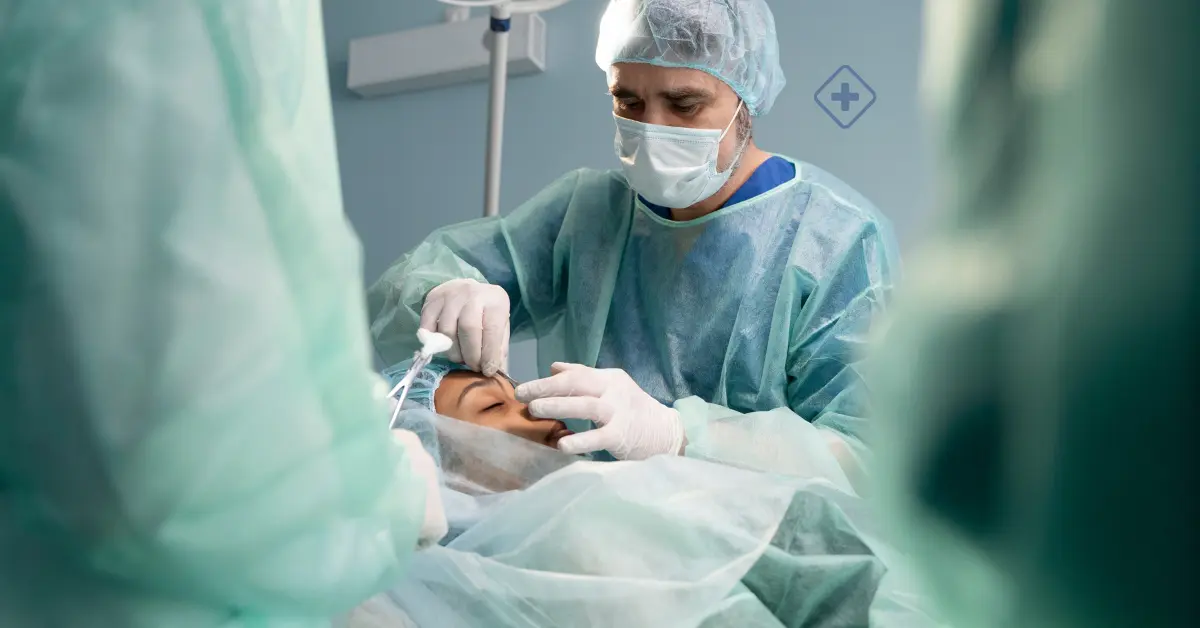
Septoplasty
Septoplasty is a highly effective procedure for correcting a deviated septum

Septoplasty is a surgical procedure aimed at correcting a deviated nasal septum. The nasal septum is the nose's internal structure that separates the two nasal cavities. When it is deviated or misaligned, it can cause breathing problems, recurrent sinus infections, and other bothersome symptoms. Septoplasty straightens the septum, improving nasal function and the patient's quality of life.
Why might you need it?
Septoplasty is mainly recommended to:
-
Improve Breathing: A deviated septum can obstruct airflow through one or both nasal passages, making normal breathing difficult.
-
Reduce Sinus Infections: Nasal obstruction can predispose to frequent and chronic sinus infections.
-
Alleviate Symptoms: It can help relieve other symptoms such as facial pain, headaches, recurrent nosebleeds, and snoring.
-
Enhance Sleep Quality: By correcting nasal obstruction, many patients experience significant improvement in sleep quality, reducing issues like sleep apnea.
How to prepare for septoplasty?
Proper preparation for septoplasty is crucial for a successful outcome and complication-free recovery. Here are some general recommendations:
-
Initial Consultation: You will consult with an Otolaryngologist (ENT) to discuss your symptoms, the procedure, and your expectations. A physical exam will be conducted, and in some cases, imaging studies may be requested.
-
Fasting Instructions: You may need to fast (not eat or drink) for several hours before surgery, especially if it is performed under general anesthesia.
-
Medications: Inform your doctor about all medications and supplements you are taking. It may be necessary to stop certain medications, especially those affecting blood clotting, such as aspirin.
-
Companion: Because you will receive anesthesia, you will need someone to accompany you and take you home after the procedure.
What does septoplasty involve?
Septoplasty is generally an outpatient procedure, meaning you can go home the same day. The process includes the following steps:
-
Anesthesia: You will receive local or general anesthesia to ensure you do not feel pain during surgery.
-
Incision: The surgeon will make an incision inside the nose to access the nasal septum. There will be no visible external scars.
-
Septum Correction: The mucous membrane covering the septum will be lifted, and the deviated portions of cartilage and bone will be removed or adjusted.
-
Repositioning the Membrane: The mucous membrane will be placed back over the corrected septum.
-
Sutures and Nasal Packing: Sutures may hold the membrane in place. In some cases, nasal packing will prevent bleeding and stabilize the structure.
The procedure takes approximately 30 to 90 minutes, depending on the case's complexity.
What to expect after septoplasty surgery?
After septoplasty, it is normal to experience some side effects and discomfort that should improve over time. Here are some things you can expect:
-
Pain and Discomfort: Mild to moderate pain is common and can be managed with pain relievers prescribed by your doctor.
-
Swelling and Congestion: You may feel swelling and nasal congestion for the first few days after surgery. After a few days, the nasal packing will be removed.
-
Mild Bleeding: There may be slight nasal bleeding, which usually decreases quickly.
-
Postoperative Instructions: Follow your doctor’s specific instructions, which may include avoiding blowing your nose, lifting heavy objects, and vigorous activities for a few weeks.
-
Complete Recovery: Most people can return to their normal activities within a week, although complete recovery of nasal tissue can take several weeks.
It is crucial to attend all follow-up appointments with your ENT to ensure proper recovery and address any concerns or complications that may arise.
Effectiveness of Septoplasty
Septoplasty is a highly effective procedure for correcting a deviated septum and improving nasal breathing. Most patients experience significant improvement in nasal function and reduced associated symptoms. Studies show that septoplasty has a high success rate and substantially improves patients' quality of life.
In addition to improving breathing, septoplasty can reduce the incidence of sinus infections, decrease snoring, and enhance sleep quality. When performed by an experienced ENT specialist, it is a safe procedure.
Get Septoplasty at BlueNetHospitals
At BlueNetHospitals, you will find a team of highly skilled Otolaryngologists committed to your well-being. We understand that undergoing surgery can be an important decision, and we want to ensure you receive the best possible care.
If you have breathing problems due to a deviated septum or any other nasal concern, we invite you to consult with our team of specialists. BlueNetHospitals offers a safe and professional environment, ensuring you receive high-quality, personalized treatment.
Schedule your appointment today, use your Health Insurance (we will assist you), and take the first step towards better breathing and quality of life. At BlueNetHospitals, your health is our priority.
BlueNetHospitals
BlueNet Hospitals Blue Net Hospitals
Health Library
Otorhinolaryngology

- Do You Need an Appointment with a Specialist?
- call us
- write us
- let's talk

